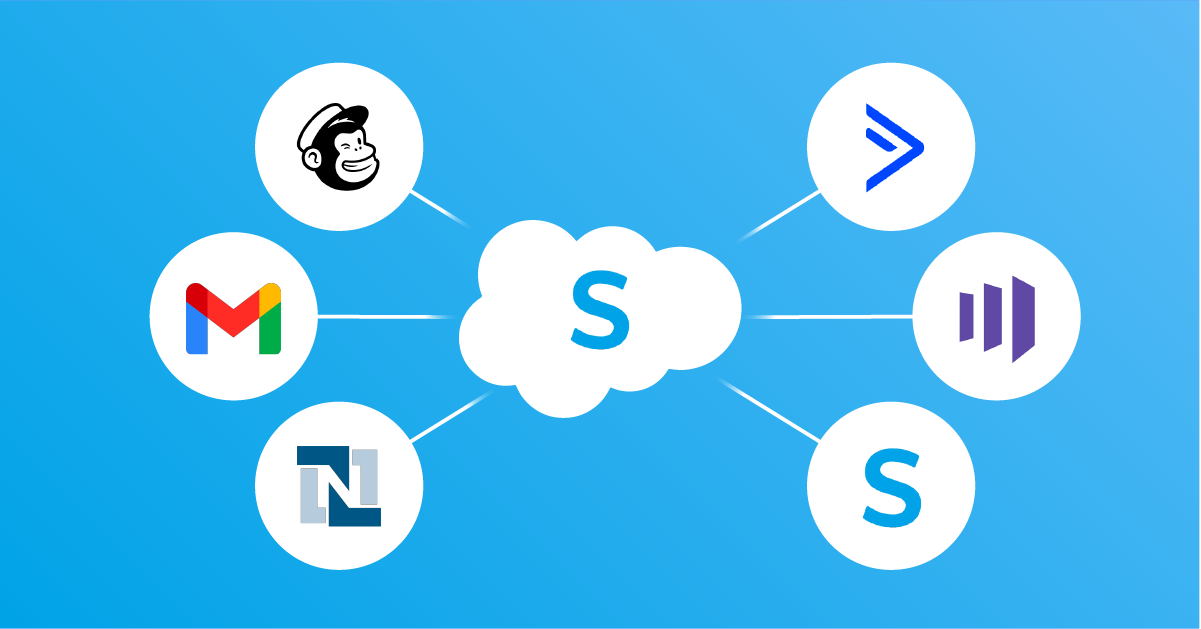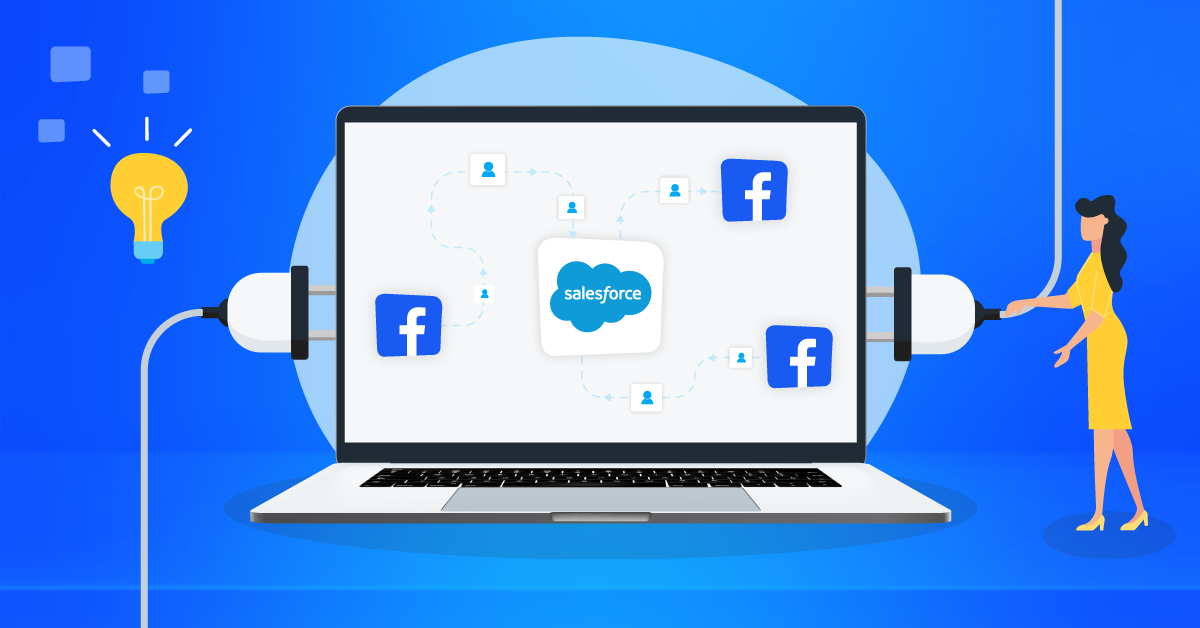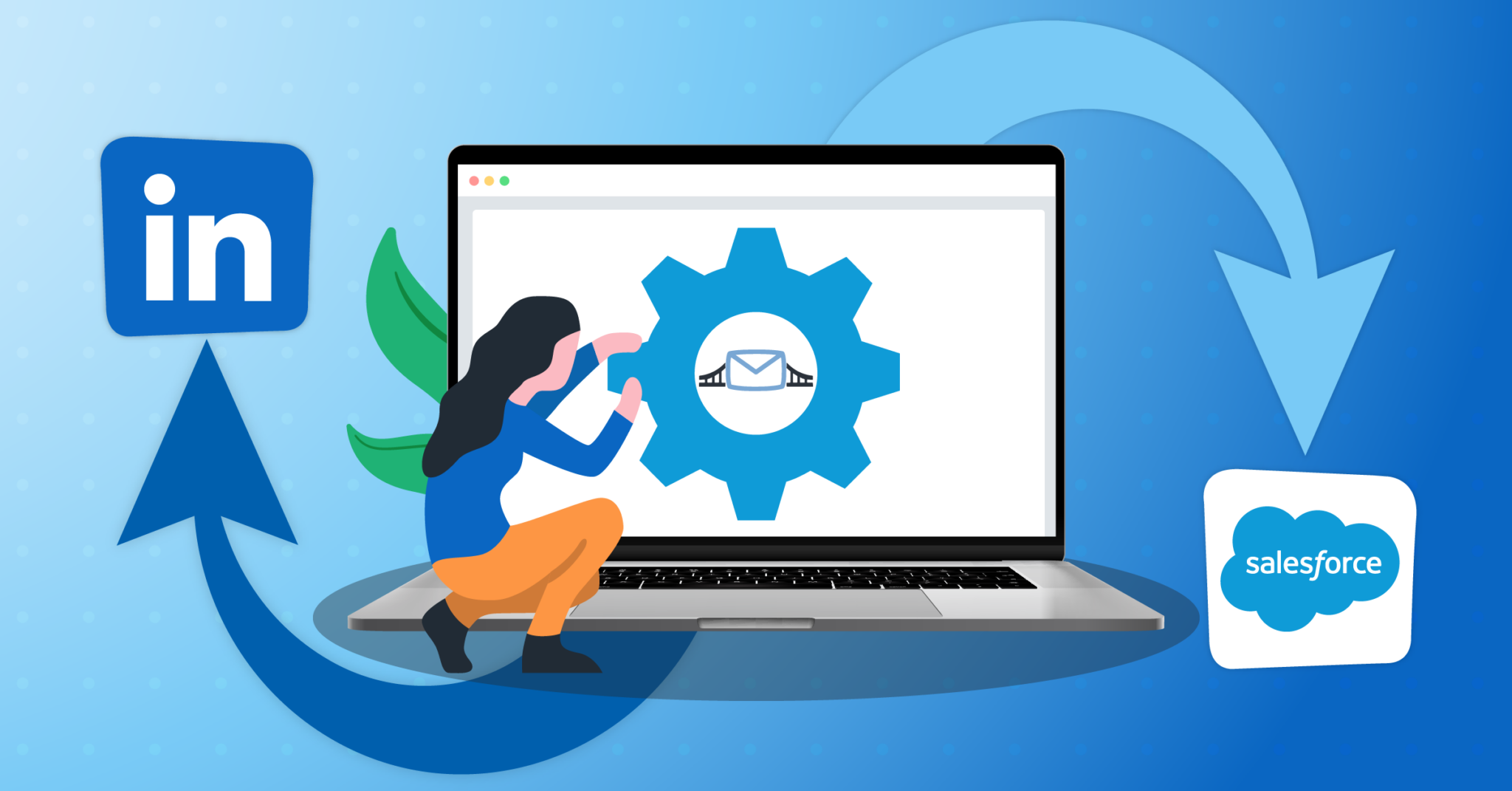Connect Salesforce® to LeadByte with LeadsBridge


In this article, you'll learn how to set up the bridge and connect Salesforce® to My CRM Example using LeadsBridge.
How to set up your bridge step-by-step tutorial
Before you start
- Head over to the left sidebar and click on the Create new Bridge green button
- You'll be taken to the first step of the bridge creation
Step 1: Choose the apps you want to connect
- Choose Salesforce® as the source for your bridge
- Choose LeadByte as the destination for your bridge
- Click on the Continue button
- At this point you can choose a name for your bridge (this will only be visible inside LeadsBridge and you can also edit it later)
Step 2: Configure your Salesforce® with LeadByte
Step 2.A: Setup your Salesforce® integration
- Click on Connect Salesforce®
- Click on Create new integration to connect your Salesforce® (or select an existing one from the dropdown if you already connected it)
- A popup wil be opened where you can authorize the Salesforce® integration
- Click on Authorize and you will be prompted to the Salesforce® authorization experience
- Here you will need to provide the info required and grant access to LeadsBridge
- Once done, you will be get back to LeadsBridge application
- You can choose a name for this Salesforce® and LeadsBridge integration (you can also edit it later)
- Once done, click on Continue button and you will get back to the bridge experience where you could choose additional integration settings
- Now that your Salesforce® is connected, you can continue with the set-up of your bridge
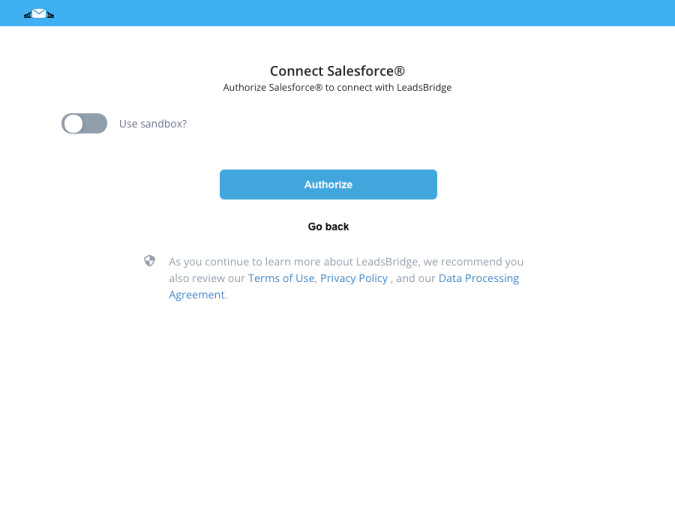

Step 2.B: Setup your LeadByte integration
- Click on Connect LeadByte
- Click on Create new integration to connect your LeadByte (or select an existing one from the dropdown if you already connected it)
- A popup wil be opened where you can authorize the LeadByte integration
- Fill Account name, API Key field to connect LeadByte with LeadsBridge
- Click on the Authorize button
- You can choose a name for this LeadByte and LeadsBridge integration (you can also edit it later)
- Once done, click on Continue button and you will get back to the bridge experience where you could choose additional integration settings
- Now that your LeadByte is connected, you can continue with the set-up of your bridge
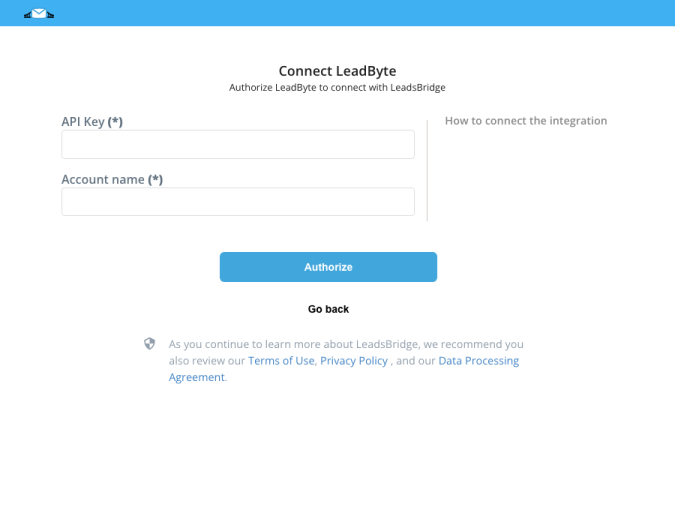

Step 2.C: Configuration details for LeadByte
How to get Account name, API Key
The Account Name is the name of the LeadByte Account used for your User.
You could find it in the login URL
XXXX.leadbyte.co.uk where XXXX is the Account Name
To find the API Key open the REST API section clicking on the menu "Admin --> Tech Hub --> REST API"
You could find it in the login URL
XXXX.leadbyte.co.uk where XXXX is the Account Name
To find the API Key open the REST API section clicking on the menu "Admin --> Tech Hub --> REST API"
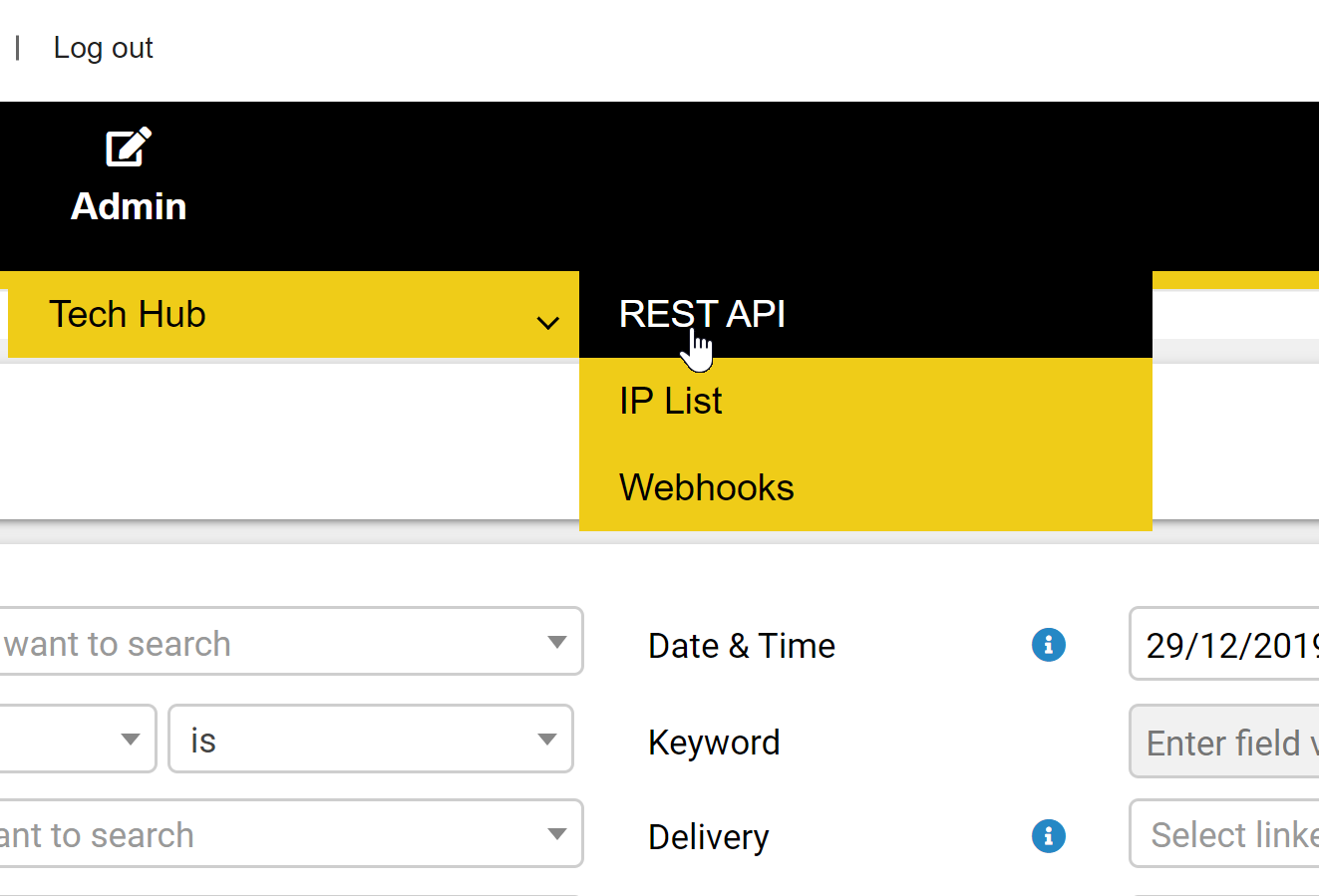

Click on the Edit button for the related User.
You could find the API Key under the related label (see GREEN box 1 in the image below).
There are other two important configurations to setup
- API Version to 1.2 (see GREEN box 2 in the image below)
- Set Read permissions for Campaigns and Create permission for Leads (see GREEN box 3 in the image below)
You could find the API Key under the related label (see GREEN box 1 in the image below).
There are other two important configurations to setup
- API Version to 1.2 (see GREEN box 2 in the image below)
- Set Read permissions for Campaigns and Create permission for Leads (see GREEN box 3 in the image below)
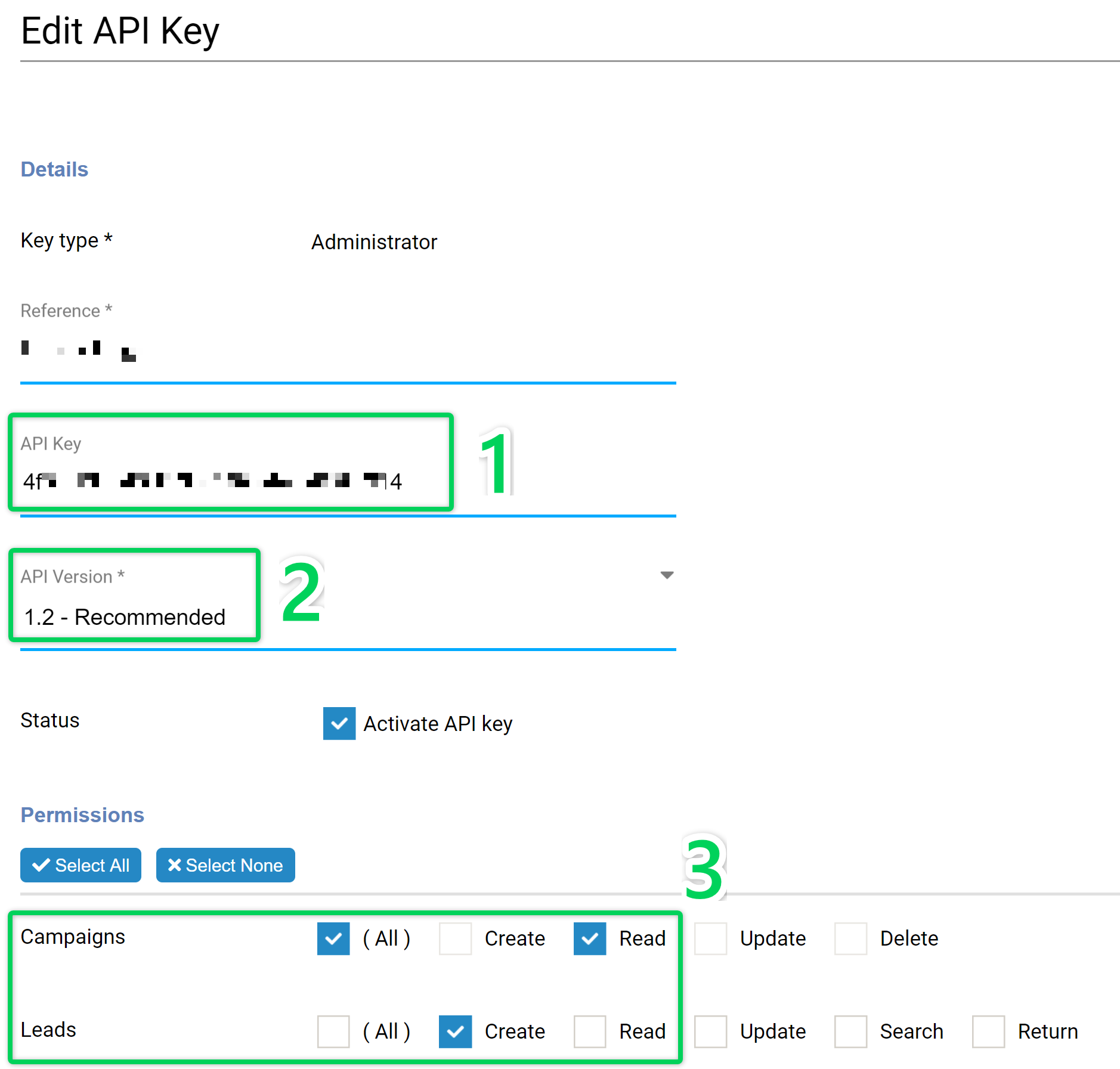

Other Info
Another important configuration is the Daily API rate limits.
If you set a specific daily limit, once the limit is reached, LeadsBridge will not be able to sync Leads until the limit is reset on the day after.
If you don't need a daily limit, leave the values to 0.
If you set a specific daily limit, once the limit is reached, LeadsBridge will not be able to sync Leads until the limit is reset on the day after.
If you don't need a daily limit, leave the values to 0.
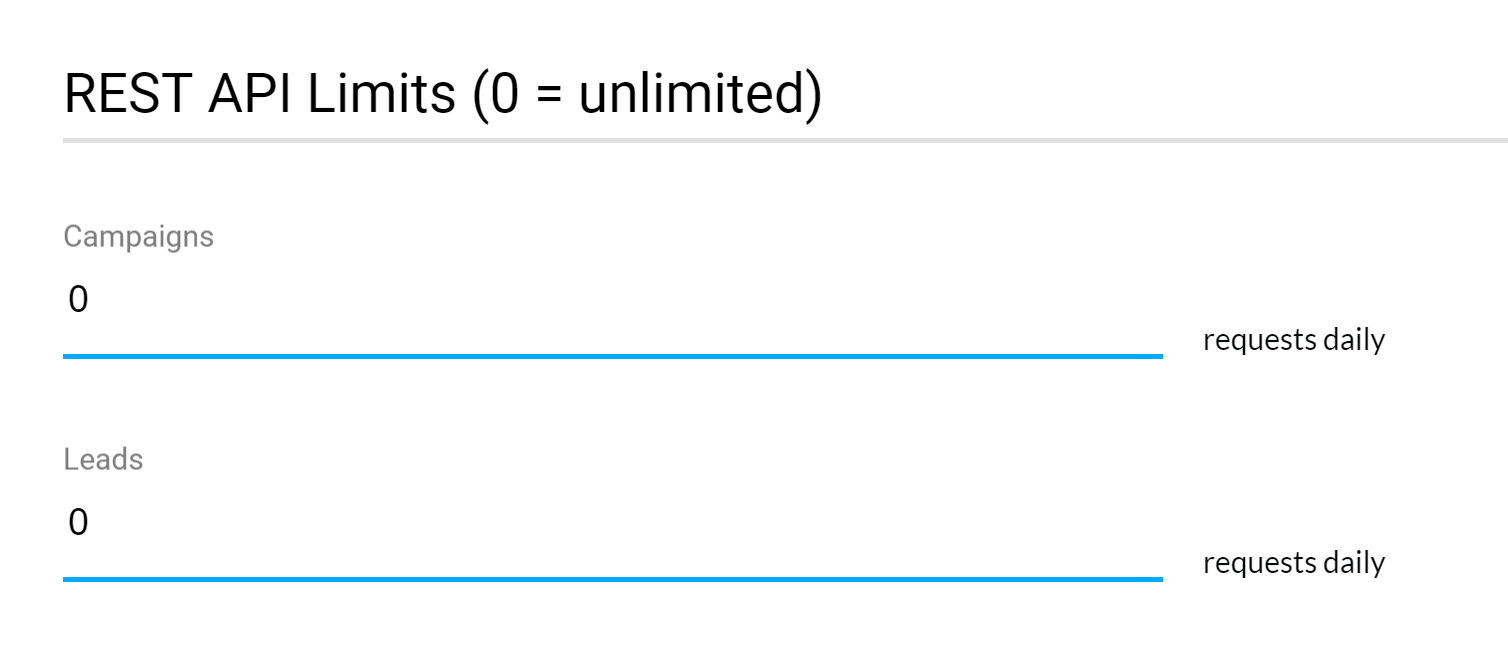

Step 2.D: Email Receipt (Optional)
You may choose to receive an email receipt for each incoming lead.
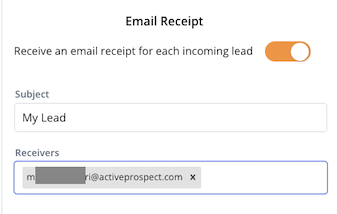

- Type the address(es) where you'd like to receive the receipt
- You may also modify the Subject line of the email
Step 3: Fields Mapping
Here you'll be able to map your Salesforce® information with your LeadByte fields.
- You will have LeadByte fields on the left. Match the information you wish to pass align from Salesforce®
- Based on LeadByte functionality, some fields might be required; if this is the case, you can identify those fields with a * (star), so be sure to map all them
- You can also use the functions to customize information like reformatting dates and times or modifying text, phone numbers and so on.
- You may leave blank the box of a field's information you don't want to send through. Clicking on the Show unmapped fields button you will have visibility on all the available fields still not mapped
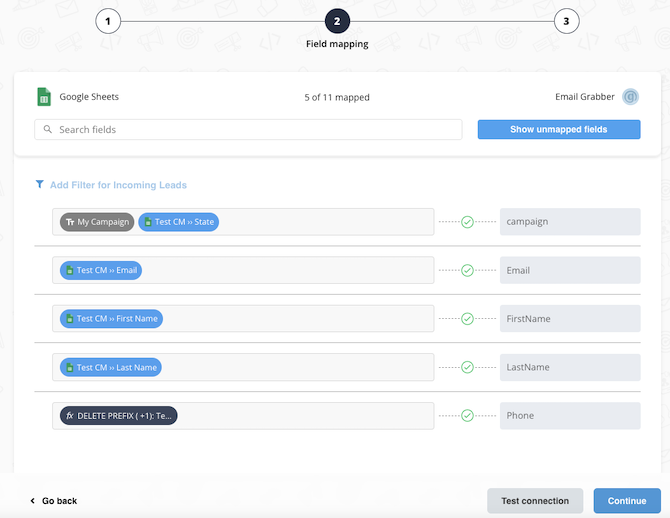

Step 3.A: Leads Filter (Optional)
If you'd like you could add a filter for incoming leads. This filter will sync only leads that meet the configured conditions
- Click on the link Add Filter for Incoming Leads on the top left
- A popup wil be opened where you can configure the filter
- You can define a series of condition to filter the leads. The lead will be synced only when all the conditions will be met
- Once finished, click the Save Changes button to switch back to the Fields Mapping to continue with the bridge configuration
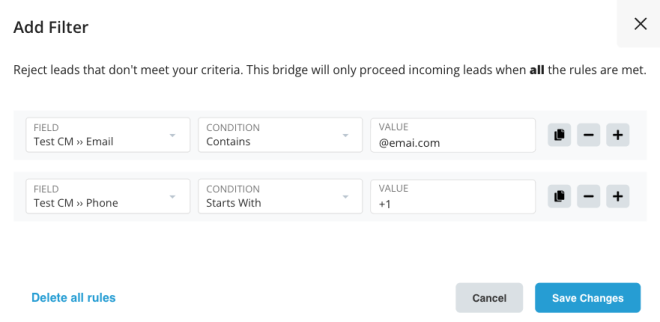

Step 4: Save and Publish
- Click on the Save and publish button
Congratulations! Now your bridge is up and running
Do you need help?
Here some additional resources:
- Salesforce® documentation page and common questions
- LeadByte documentation page and common questions
- LeadsBridge KNOWLEDGE BASE
- Contact support from your account clicking on the top right Support button




